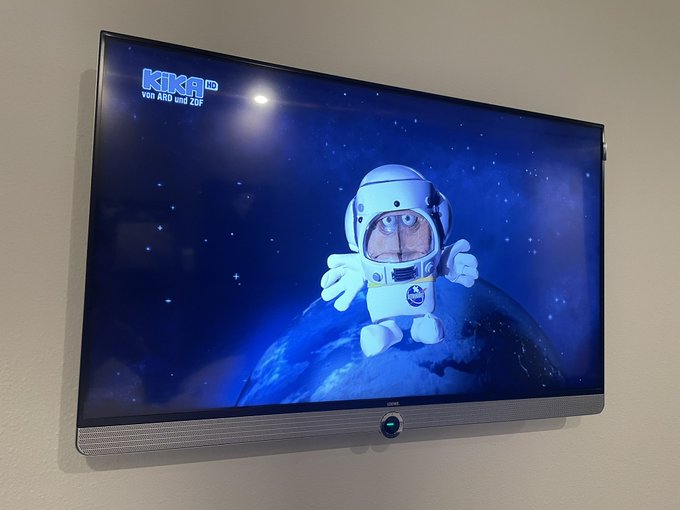
From Stewart Brand at Works In Progress: “At the very beginning of the auto industry, no less than three radically different design-for-maintenance philosophies fought it out. One lost, but not because of maintenance issues. The other two won big by rejecting each other’s approach to maintenance. Electric automobiles were the first to market, almost fully formed by the 1890s. The electric car appeared to have all of the good points of the horse and buggy with none of its drawbacks. It was noiseless, odorless, and very easy to start and drive. No other motor vehicle could match its comfort and cleanliness or its simplicity of construction and ease of maintenance. Gasoline-powered internal combustion engines were arriving at the same time, but they were a pain to run. Owners who could afford it hired a chauffeur to repair and drive the complex machines.”
A group of shipwrecked boys survived on a remote island for over a year

From Dan Lewis at Now I Know: “In June of 1965, six Tongan boys — all between 15 and 17 years old — decided to skip school. They attended a Catholic boarding school at St. Andrew’s College in Nuku’alofa, Tonga’s capital, on the island of Tongatapu. For reasons unclear, the boys decided that it wasn’t enough to go into town for the day; they really wanted to escape the strict schooling environment. They hastily stole a small boat, measuring only about 24 feet long, and set out to sea. They anchored for the night a few miles offshore, probably expecting to return home the next day. But the weather had other ideas. A storm struck their ship, snapping the rope that tied them to the anchor, and for the next eight days, their tiny ship was tossed. The quickly-deteriorating ship crashed down on the shore of a barely-charted, deserted isle known as ‘Ata.”
Note: This is a version of my personal newsletter, which I send out via Ghost, the open-source publishing platform. You can see other issues and sign up here.
A lake in Canada is the symbolic starting point for a new era in human evolution

From Sarah Kaplan for the Washington Post: “A humble lake in a Canadian suburb may soon become the symbolic starting point for a radical new chapter in Earth’s official history: the Anthropocene, or the age of humans. A group of scientists said Tuesday the best evidence for humanity’s overwhelming impact on the planet could be found at Crawford Lake in Milton, Ontario. The lake’s finely layered sediments contain a thousand-year record of environmental history, culminating in an explosion of man-made disruption around the middle of the 20th century. That’s when scientists say human activities — from nuclear weapons tests and fossil fuel combustion to deforestation and global trade — began to leave an indelible imprint on Earth’s geologic record. The announcement marks a crucial step in a years-long effort to determine whether people have altered the planet enough to launch a new epoch in geologic time.”
This marketing expert convinced women that cigarettes were a sign of emancipation

From Lance Fletcher on Medium: “Bernays made his name working for the tobacco companies, with the campaign, “Torches for Freedom.” In the first wave of feminism, cigarettes were a hot topic—smoking was something for men. Cigarettes became a sign of equality and emancipation. The watershed moment came in March 1929, on Easter Sunday, in New York City. Bernays hired women to march in this parade, smoking like steam powered 1 Trains. And it worked. It was a significant moment for greater equality for women—and Bernays made a killing. He got the idea from psychoanalyst A.A. Brill, who translated most of Sigmund Freud and Carl Jung’s work into English for the first time, being an Austrian transplant himself. Brill had referred to cigarettes as, “Torches of Freedom,” describing the natural urge for women to smoke—at the time, smoking was seen as a natural act, for men. Brill expanded it to women.”
A jet had to be diverted because of the way a flight attendant handed someone a bag of nuts

From Dan Lewis at Now I Know: “On December 5, 2014, a 40-year-old Korean Air executive named Cho Hyan-ah boarded Flight 086 at New York City’s JFK Airport. A vice president at the airline and the daughter of Korean Air chairman Cho Yang-ho, Heather Cho was given just about every perk available on such a flight, including a bag of macadamia nuts. That’s where the problems began. Flight attendant Kim Do-hee simply handed Cho the nuts in their original sealed packaging, but Cho believed, and insisted, that the nuts be served to her on a plate. Cho admonished Kim and demanded to see the attendant crew chief, Park Chang-jin. Cho asked Park “about the proper procedure for food service in first class. Unsatisfied with his response, she demanded that he get off the plane.” Cho also insisted that the pilots return the flight back to the gate.”
Facing extinction, the country of Tuvalu considers creating a digital clone of itself

From Kalolaine Fainu in the Guardian: “Tuvalu is expected to be one of the first countries in the world to be completely lost to climate change. The three coral islands and six atolls that make up the country have a total land mass of less than 26 sq km. At current rates of sea level rise, some estimates suggest that half the land area of the capital, Funafuti, will be flooded by tidal waters within three decades. By 2100, 95% of land will be flooded by periodic king tides, making it essentially uninhabitable. Teafa says that for youth in particular, fear is the predominant emotion. “It’s the worst feeling ever; worse than being afraid of heights, afraid of the dark.” Work is under way in Tuvalu to reclaim land, along with attempts to preserve its culture and history online, in groundbreaking plans that could see Tuvalu become the first wholly digitised nation in the metaverse.”
Spymaster John Le Carre remembers his early years working for the British secret service

From the Daily Mail: “The Secret Intelligence Service I knew occupied dusky suites of little rooms opposite St James’s Park Tube station in London. The higher you went, the more secret. The chief himself – Control in my books – lived on the fourth floor of a crooked little building at the end of a creepy, spidery corridor and then up a small staircase. As you walked up to be received by the chief, you saw yourself distorted in a great fisheye mirror, in the eyeline of the beady women I call the Mothers, who were in charge of the front office. I worked for MI6 in the Sixties, during the great witch-hunts, when the shared paranoia of the Cold War gripped the services. Kim Philby and George Blake had already been unmasked. ‘You’re leaky,’ the Americans would say to us.’ Reports of the leaks were coming in from prominent Soviet defectors who were being kept in secret, all of them bubbling about the idea of another mole in MI6.”
In this German kids show, the main character is a chronically depressed piece of bread
From AJ Bauer on Twitter

